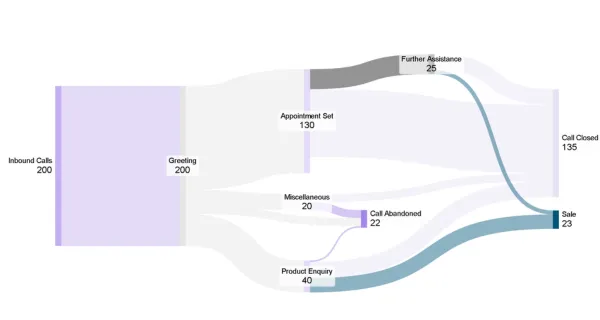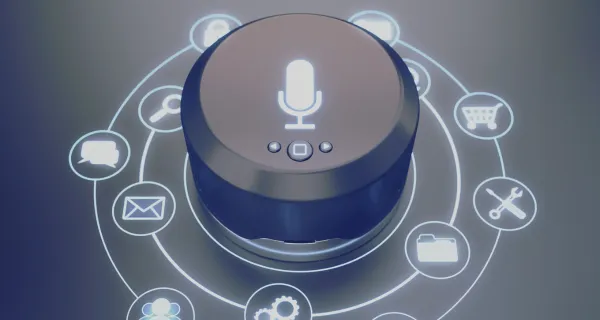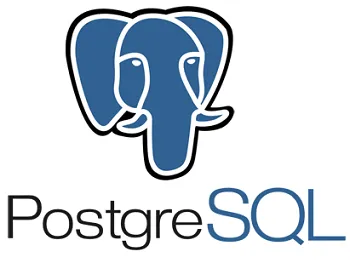How Our Voice Agents Work
We provide conversational AI solutions that work smoothly with your existing business systems. Our architecture—built on telephony, AI voice capabilities, knowledge management, API integrations, analytics, and low-code automation—enables businesses to deliver quality customer experiences consistently and for us to deploy them very quickly.

Telephony and Messaging Integration
Our platform features a comprehensive telephony and messaging system supporting voice calls, SMS, and messaging services including the like of WhatsApp and Slack.
This enables businesses to connect with customers through their preferred communication channels.
The integration handles both inbound and outbound communications, facilitating timely engagement and better customer experiences.
AI-Powered Voice Interactions
We integrate conversational AI technology to improve voice-based exchanges. This system interprets spoken language, enabling fluid conversations between users and AI agents.
Using dedicated API connections to low latency voice processing services, it provides prompt responses and coherent user experiences, making interactions more contextual and effective.


Human-Like Speech for Natural Conversations
To enhance the clarity and expressiveness of AI-generated speech, our solution incorporates industry-leading text-to-speech capabilities.
This technology delivers highly natural and human-like voice synthesis,
supporting multiple languages and voice styles to cater to diverse customer
needs.
Whether engaging in casual conversation or delivering complex responses, the AI agent ensures clarity, warmth, and professionalism in every interaction.
Knowledge-Driven Interactions
A key component of our platform a dynamic knowledge base, which aggregates and structures information from various sources, including FAQs, product documentation, websites and customer records. This allows AI agents to retrieve relevant details quickly and accurately when responding to customer inquiries. Additionally, these knowledge bases can be programmed to query dynamic data sources, such as CRM systems or proprietary databases, ensuring that the AI agent delivers real-time, personalized responses.
By leveraging this structured knowledge, businesses can provide their customers with instant, precise answers while ensuring consistency in communication across all interactions.


API-Enabled Integration with Business Systems
Our platform connects with external business systems for real-time data access and management. When receiving a call, the AI agent can access the caller's customer profile, enabling personalized service. Integrations include:
CRM Systems – Access and update customer profiles in systems like Oracle Fusion Cloud or Microsoft Dynamics 365
Order/Inventory Management – Provide updates on order status and product availability
Billing/Payment Platforms – Handle invoice questions and process payments
Scheduling Tools – Manage appointments and deliver reminders
Call Analysis for Continuous Improvement
To ensure ongoing enhancement of AI agent performance, our platform incorporates powerful call analysis tools.
AI-Based Call Evaluation – A native assessment model utilizes a large language model (LLM) as a judge to evaluate conversation effectiveness. This system provides structured feedback on AI-generated responses, helping refine conversation flow and accuracy.
External Call Analysis Tools track interaction patterns, assess customer sentiment, and generate insights for optimization. These tools offer a detailed view of caller journeys, highlighting areas for improvement and identifying opportunities for better engagement.
By continuously monitoring and refining AI interactions, businesses can ensure high-quality, reliable customer service.


Workflow Automation with Low-Code/No-Code Integration
Our low-code / no-code automation tools connect AI agents with third-party applications, enabling:
CRM Data Synchronization – Syncing customer data between systems like Oracle Fusion Cloud and Microsoft Dynamics
Multi-Channel Marketing – Triggering email follow-ups in Mailchimp or creating customer segments in HubSpot
Support Ticket Management – Generating cases in Zendesk or follow-up tasks in Salesforce Service Cloud
Process Automation – Sending conversation summaries to Slack or creating project tasks in Asana
Read our Blogs and Find Out More

Apple’s AI Isn’t Late—It’s Just Fashionably Delayed
By your go-to tech journalist at scotsphere AI who still asks Siri to set timers—and gets a weather forecast instead
Let’s face it: asking Siri to do anything in 2025 feels a bit like inviting your nan to DJ your house party. She means well. She’s trying. But she’s absolutely playing ABBA.
And with ChatGPT whispering sweet nothings from your browser tab and Google Gemini basically your new life coach, it’s fair to ask—has Apple just ghosted the AI revolution?
Well… not exactly. While it might look like Tim Cook missed the boat, what if Apple’s just been waiting for everyone else to crash theirs first?
From Trailblazer to Tail-Ender?
Let’s start with the obvious: Apple’s AI rep has taken a bit of a nosedive. Siri, once a pioneering digital assistant, now feels like she’s been frozen in carbonite since 2015. And while Microsoft’s Copilot is writing your pitch deck and Google’s Gemini is explaining quantum physics to your kid, Siri still stumbles over “remind me to call Mum.”
Even worse? Only 20% of iPhones can even run Apple’s latest AI features. That’s like launching a Netflix killer that only plays on DVD players. Not exactly the Silicon Valley flex we’re used to.
“Apple’s AI rollout looks cautious to the point of sleepy,” says Dr. Emeka Tunde, a digital transformation expert at FutureFrame. “But caution isn’t always incompetence. Sometimes it’s strategy in disguise.”
Apple’s Slow-Cooked AI Strategy
Let’s not forget: this is the same company that waited until the BlackBerry era had a hangover before dropping the iPhone—and obliterating the market.
So what’s Apple actually doing while the rest of Big Tech is hyping LLMs and bot-powered email?
One word: privacy.
While competitors vacuum up every keystroke to feed their AI appetites, Apple is betting on something different: keeping your data on your device, out of the cloud, and off their books. Their AI models run locally. And when they do need a server assist, they forget everything faster than your goldfish.
Call it paranoid. Apple calls it product design.
“In a post-GDPR world, Apple’s privacy-first AI may actually be its superpower,” notes Mei Lin Tan, Chief Data Officer at Ethica.ai. “We’re seeing rising demand for models that are powerful, yes—but also forgetful by design.”
One Platform to Rule Them All
Here’s where it gets interesting. Apple isn’t racing to build the flashiest AI tools itself. It’s turning the iPhone into the platform for them.
In 2025, Apple cracked open its on-device AI models to third-party developers. Now, with just a few lines of Swift, your favourite app can whisper to Apple’s AI under the hood—securely and privately.
It’s a move straight from Apple’s classic playbook. Remember when the App Store exploded because Apple didn’t try to build everything themselves? Same energy. New medium.
Combine that with their new partnerships—yes, they even invited ChatGPT to the Siri party—and you’ve got Apple acknowledging it can’t win AI alone… so it’s building the court everyone wants to play on.
A Surprising Stat for Your Brain’s RAM
Here’s a curveball for your next LinkedIn humblebrag:
Only 1 in 5 iPhones can even access Apple’s new AI features. That’s fewer than the number of people who still buy DVDs in 2025.
So while Apple might be building the safest AI playground in town, most users are still stuck outside the gates. And that’s a problem.
Because in the AI world, attention is everything—and users are already forming habits on other platforms.
The Bottom Line
Apple’s AI game isn’t weak. It’s just weird—on purpose.
They’re not building the flashiest demos or voice assistants that can rap in Klingon. They’re building infrastructure. Guardrails. A slow-cooked strategy based on trust, privacy, and letting developers shine.
But here’s the rub: AI moves at light speed. Apple moves like it’s doing tai chi in a zen garden. And the longer it waits, the harder it gets to change user behaviour, win developer love, or avoid becoming the next Nokia.
The next 12 months will be make or break. If Apple nails the landing, they’ll look like prophets. If not, Siri might become the world’s most overengineered egg timer.
What Should You Do About It?
Whether you’re Team Apple or just trying to stop missing client calls, the big picture is clear: AI is becoming invisible infrastructure. Quietly doing the work, making bookings, answering calls, and integrating with your everyday systems.
And that’s where scotsphere AI comes in.
We build enterprise-ready voice agents and workflow integrations that don’t just sound clever—they are clever. Want to see how an AI assistant can book appointments straight into your systems without compromising on trust or privacy?
Call us. Or better yet, let our AI agent answer.
Because the future of AI isn’t about shouting louder. It’s about listening smarter.
Navigation
Contact Us
Registered with the Information Commissioners Office: ZC021807
Check our registration
VAT Registration: 941342835
Company Registration: SC305350
Cyber Essentials Certified:

© 2025 scotsphere.ai All Rights Reserved










